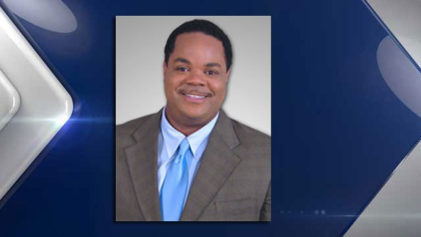
Members of the GOP were there to practice for the Congressional baseball game, an annual event that allows Republicans and Democrats to compete against one another to benefit three local charities: the Washington Nationals Dream Foundation, the Washington Literacy Center and the Boys and Girls Clubs of Greater Washington.
After reportedly asking if they were Republicans, the 66-year-old Illinois resident opened fire, striking a congressional staffer, two Capitol Police officers, a lobbyist and House majority whip Steve Scalise, who is still in critical condition at the time of this writing.
Recounting the traumatic assault, Republican Rep. Mike Bishop said, “He was hunting us at that point. There was so much gunfire, you couldn’t get up and run.
“Pop, pop, pop, pop — it’s a sound I’ll never forget.”
Facing additional surgeries to address the injuries sustained to his internal organs, the hospital released an early update that read, “Congressman Steve Scalise sustained a single rifle shot to the left hip. The bullet traveled across his pelvis, fracturing bones, injuring internal organs and causing severe bleeding. He underwent immediate surgery and an additional procedure to stop bleeding. He has received multiple units of blood transfusion. His condition is critical and he will require additional operations. We will provide periodic updates.”
After visiting Scalise, President Donald Trump shared his thoughts via twitter, “Just left hospital. Rep. Steve Scalise, one of the truly great people, is in very tough shape — but he is a real fighter. Pray for Steve!”
The controversial congressman, who once served as a guest speaker during a white supremacist conference, has become the ninth member of Congress to be shot and the first since the 2011 shooting of former Arizona Rep. Gabby Giffords. She survived the attack, but nearly 20 others were caught in the crossfire, with six later succumbing to their injuries.
Hodgkinson was reportedly disillusioned with both Donald Trump and Hillary Clinton, supporting Bernie Sanders and later volunteering for his election campaign.
The Vermont Senator denounced the attack and the shooter in the strongest terms. “I have just been informed that the alleged shooter at the Republican baseball practice is someone who apparently volunteered on my presidential campaign. I am sickened by this despicable act. Let me be as clear as I can be. Violence of any kind is unacceptable in our society and I condemn this action in the strongest possible terms,” Sanders said in a statement.
In America, we treat mass shootings roughly the same, allowing elected officials to offer up little more than condolences — and their prayers, of course — in lieu of actual change. For Scalise, that meant aligning with the NRA, that does not support background checks nor limitations on gun ownership. Hodgkinson, the shooter in this case still had a legal right to have a gun despite a prior criminal record, involving the firing of a gun, something Scalise supported. Earlier this year, Scalise joined other House Republicans to help repeal an Obama-era rule that made it more difficult for mentally impaired Americans to purchase firearms.
It’s the cost of doing business in America, a situation Stanford law professor and gun policy expert John Donohue described as “Congressmen, especially Republican congressmen, are very obedient to whatever the NRA tells them.”
Americans have grown accustomed to mass shootings, with gun reform a non-starter for politicians unapologetically hitched to promoting gun rights at all costs. According to the Gun Violence Archive, in 2015 alone, over 372 mass shootings occurred, with 475 people killed.
“This will be business as usual. They will soon be saying that the answer is more guns and new freedoms, not new laws,” UCLA law professor Adam Winkler said.
And so the cycle continues. But personal politics aside, while we continue to debate the Second Amendment, gun violence in America has continued to soar.
According to a 2016 study by The American Journal of Medicine, “Overall, our results show that the U.S., which has the most firearms per capita in the world, suffers disproportionately from firearm deaths compared with other high-income countries.”
“These results are consistent with the hypothesis that our firearms are killing us rather than protecting us,” wrote author and University of Nevada-Reno assistant professor Erin Grinshteyn.
Some are doubling down, with Rep. Chris Collins declaring, “I will be carrying when I’m out and about. On a rare occasion, I’d have my gun in the glove box. But it’s going to be in my pocket from this day forward.”
Citing the current political climate — not guns — as the reason behind this latest assault, Collins, during an appearance on WBEN radio, insisted, “I can only hope that the Democrats do tone down the rhetoric. The rhetoric has been outrageous — the finger-pointing, just the tone and the angst and the anger directed at Donald Trump, his supporters. Really, then, you know, some people react to things like that. They get angry, as well. And then you fuel the fires.”
Iowa Representative Steve King, and noted racist, has echoed that sentiment, going as far as to blame President Obama for the rising tide of vitriol in American politics.
During an interview with on MSN he stated “I do want to put some of this at the feet of Barack Obama. He contributed mightily to dividing us. He focused on our differences rather than our things that unify us. And this is some of the fruits of that labor.”
What King neglected to mention however, was his own part in role in the current vitriol in our political system, including a 2016 interview with Chris Hayes where he said, “This whole white people business, though, does get a little tired,” Congressman King began.
“I’d ask you to go back through history and figure out where are these contributions that have been made by these other categories of people that you are talking about. Where did any other subgroup of people contribute more to civilization?” King stated.
Nor has any mention been made of the racial slurs, the comparisons to apes or the numerous effigies of Obama being lynched, that followed him through two terms in the White House. Current Republican criticism of the recent shooting leaves out any remorse for the comments made by Trump, including the racist birther theory that rallied the alt-right movement around him.
Nor has the president readily condemned the actions of alt-right supporters, choosing to remain silent when U.S. soldier Richard Collins was murdered in May by white supremacist Sean Urbanski just days before he was set to graduate from Bowie State University.
In the Trump era, civility in politics only exists when bigots are demanding that their views be heard, and gun violence is only condemned when it occurs to one of their own. Others are taking a more bipartisan approach, with Giffords penning a piece for The Washington Post that called for empathy in the face of tragedy.
“It doesn’t matter if you’re a Democrat or a Republican, nor if you’re a senator or a representative, nor a staffer or sworn officer. If you serve the institution of Congress, you’re connected to your colleagues, current and former, by a shared sense of service to ideals far greater than yourself. This shooting is an attack on all who serve and on all who participate in our democracy,” she wrote.
It’s a debate unlikely to be resolved anytime soon, thanks in part to legislators more vested in ignoring the issue than addressing it, an inconvenient truth Giffords implores the nation to address. “We know, as always, that no one law could prevent a shooting like this,” she writes. “But we also know that we must acknowledge a problem: an unacceptable rate of gun violence in this country. And we must acknowledge that a deadly problem like this brings a responsibility to find solutions. And that’s where we, as a nation, will need courage in abundance, as my former colleagues find the strength to recover from their wounds — and the bravery to try to make shootings like this one less likely in the future.”


